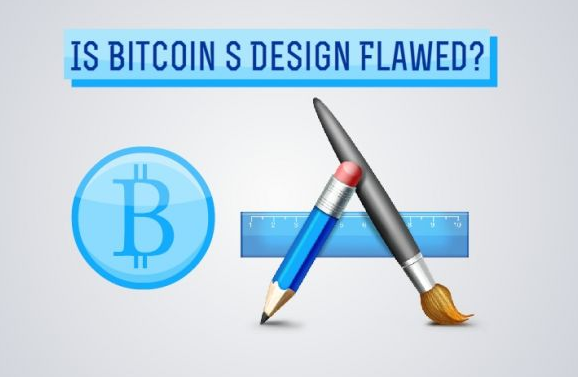DeepOnion – Taking Privacy To Another Level
This article will take a look at what cryptocurrencies essentially are, the market leader Bitcoin and the promising new community centric project DeepOnion.
What Are Cryptocurrencies?
[
In simple terms, cryptocurrencies are limited entries in a database that no one is able to change without fulfilling specific conditions. Believe it or not this definition is closely tied to that of a “standard” currency.
Take for instance your savings in your bank account: Yes that’s right, they are no more than entries in a database that can only be changed under specific conditions. This principle can even be applied to bank notes and physical coins: They are limited entries in a public physical database, which can only be changed if you meet the condition that you physically own the notes and coins. Money depends on a verified entry in some kind of database of balances, accounts and transactions.
How Miners Confirm Transactions And Create Coins

Let’s delve deeper into the mechanism which rules the databases of cryptocurrencies. A cryptocurrency such as Bitcoin is made up of a network of peers. Each of these peers has a complete record of the history of all transactions, meaning they also know the balance of every account.
Each transaction consists of a file that says, “Person A gives X amount of Bitcoin to Person B” which is then signed by Person A’s private key. This is basic public key cryptography. Once signed, the transaction is broadcasted in the network, meaning that the information is sent from one peer to every other peer. This is basic p2p technology in action!
Once a transaction is made, the whole network is alerted almost immediately. However, it is only confirmed after a certain amount of time.
This is where the miners come in.
It is only the miners that can confirm transactions. This in essence is their job within the cryptocurrency network. Miners process transactions and authorise them as being legitimate. This news is then spread across the network. Once a transaction is confirmed by a miner it becomes part of the blockchain.
Miners are rewarded for their efforts in cryptocurrency, for example Bitcoins.

The Flaws Of Bitcoin
You might already know this by now: Bitcoin was the first every cryptocurrency and is thus a prototype. It started off as an experiment which was designed by a person or a group of people, going by the name Satoshi Nakamoto.
With most new ideas and products, they are tested and any inherent flaws are corrected to make it work better. For example, the very first bicycle was designed in 1817 and was operated by running with your feet on the ground whilst sitting in a saddle!

Just because an original concept is first to release its creation to the world does not mean it is the best possible form of the idea.
Yes it’s true that the Bitcoin source code can be changed to make design changes, but there are already newer cryptocurrencies that look far more advanced than Bitcoin. Whether Bitcoin can overcome its flaws and become a functioning currency in the future remains to be seen.
Privacy And Anonymity Problems With Bitcoin

The Bitcoin network has been built upon a publicly available blockchain that is shared over a decentralised network, made up of wallet users and miners. A real problem for Bitcoin users is that many cryptocurrency exchanges require some sort of identity verification, which is then tied to the users wallet address. This results in the loss of both the privacy and anonymity of the wallet owner. It is the equivalent of your standard bank account transactions being broadcast for the whole world to see!
Anonymity is a major issue for Bitcoin, where node traffic is sent in an unencrypted manner. The IP’s of the peers using Bitcoin are clearly visible, leaving them open to targeted attacks, resulting in network interruption. IP information can easily be obtained via the “getpeerinfo” command in the currently available Bitcoin wallets. This is considered bad practice, as there is a real possibility that a hacker can link a Bitcoin wallet address with an IP and direct a more sophisticated type of attack.
DeepOnion – Protect Your Investments

A relatively new cryptocurrency on the market, DeepOnion, understands the importance of privacy and anonymity. They regard the protection of users wallets IP address as paramount to identity protection and ultimately your financial assets. For this reason, DeepOnion implements anonymous TOR IP addresses for it’s users, which dramatically reduces the risks of sophisticated hacking attacks.
The team at DeepOnion are firm believers that privacy is a right and that everyone should be allowed to remain anonymous and to send and receive cryptocurrency without the prying eyes of Governments or Financial Authorities. They want to ultimately create a 100% anonymous cryptocurrency, whereby no privacy or anonymity is sacrificed and that functions within the current financial world. This is made possible by making blockchain technology an inclusive part of the DeepOnion network.
Going back to the point about Bitcoin and the first ever bicycle that was designed in 1817, DeepOnion is a constantly evolving project that recognises that the demands of technology, security and privacy are always changing and is always looking to improve on it’s original ideas.
DeepOnion is also not just a small team working together, it is an entire community that has grown from a small number to over 12,000 members in a very short space of time! We all share the same beliefs that online privacy and anonymous financial transactions are a right, not just a privilege.
For more information on this fantastic community centric project, check out the DeepOnion whitepaper available at: https://deeponion.org/White-Paper.pdf
Here is my BitCoinTalk forum profile: https://bitcointalk.org/index.php?action=profile;u=1559399
I hope you enjoyed my article, please give me an upvote if you did. I look forward to posting many more articles!